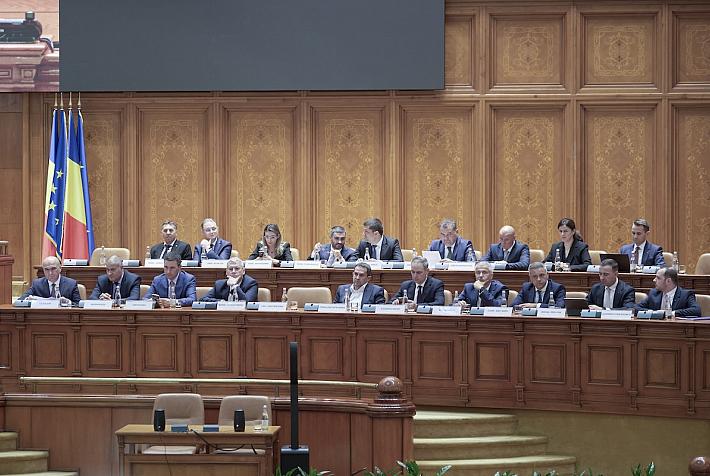Venice Commission asks Romania to further improve Constitution revision draft

The draft law to review the Romanian Constitution still needs further improvements on key issues, the Venice Commission concluded in a recently adopted opinion. The Commission, the Council of Europe’s advisory body on constitutional matters, expects increased efforts from Romania in the forthcoming stages of the process.
“The Commission regrets that, following some initial positive steps indicating an option for an open and transparent approach, the revision process was lead in a less inclusive manner and did not entirely benefit of the timeframe available and the potential input of the various circles having shown interest, in the Romanian society, for the revision of the Constitution,” its statement reads.
It goes on saying that it welcomes the fact that efforts have been made towards clarification and removing inconsistencies noted in the previous draft, including by removing the most controversial provisions.
However, it notes that a constructive co-operation between the majority and the opposition and a wide public debate are key pre-requirements for a successful revision process and the legitimacy of the future text of the Constitution.
In the revised draft the Government sent in February 2014, only a limited part of the recommendations contained in opinion adopted in 2012 by the Venice Commission have been translated into amendments to the Constitution. These include the clarification, to some extent, of the distribution of powers between the President and the Government in relation to matters of foreign affairs, a constitutional basis, with specified criteria, for the dismissal of the Advocate of the people, and to some extent, the addition, to the procedure for revocation of the President, of the requirement that the Parliament would be dismissed in the event of refusal by the population, in referendum, of the dismissal proposal. All these cover hot topics back in 2012.
Romania still has to make key changes on issues which are of fundamental importance for the consolidation of the Romanian Constitution, in the Commission's opinion. The Venice Commission is especially concerned that a clear option for one particular form of government, as a foundation for entire system, is still missing. As a result, despite some improvements, the definition of the respective roles and inter-relations of the main state institutions still lacks clarity.
Key issues, in the Venice Commission's opinion:
- · to make a clear choice for a government system, as a precondition for subsequent institutional and other arrangements;
- · to consistently address throughout the Constitution, in line with the choice made, the powers and inter-relations of the highest State institutions;
- · to clarify the respective competences of the President and the Prime Minister;
- · to introduce, among the founding principles of the Romanian constitutional system, the principle of mutual respect and loyal co-operation between powers the Constitution;
- · to streamline the legislative procedure and limit to the minimum the need for government ordinances;
- · to provide for the basic tenets of the status and competences of the Advocate of the People in the Constitution itself, in order to safeguard its independent status;
- · to provide a clear and improved legal basis to enable the Superior Council of Magistracy to effectively fulfill its task of guarantor of the independence of judicial body;
- · to transform, if maintained at all, the procedure on the suspension of the President into a clearly legal responsibility, initiated by Parliament but settled by a court.
In addition, recommendations aiming at strengthening guarantees for independence in the field of the judiciary have not been adequately taken up. “Amendments proposed in relation the Superior Council of Magistracy do not seem to be aimed at strengthening this institution, although its contribution in maintaining a stable democracy, based on the rule of law, is essential. Also, a unified and coherent regulation of the status of prosecutors, with clear and efficient guarantees for their independence is still to be provided,” the statement reads.
The Venice Commission, or the European Commission for Democracy through Law, is the Council of Europe’s advisory body on constitutional matters. Founded in 1990, the commission has played a lead role in the adoption of constitutions in Europe.
The Commission meets four times a year at the Scuola Grande di San Giovanni Evangelista, in Venice. Originally the Commission included 18 Council of Europe states, since then it has expanded and now has 58 members, in Europe, Central Asia, North Africa and beyond.
editor@romania-insider.com











